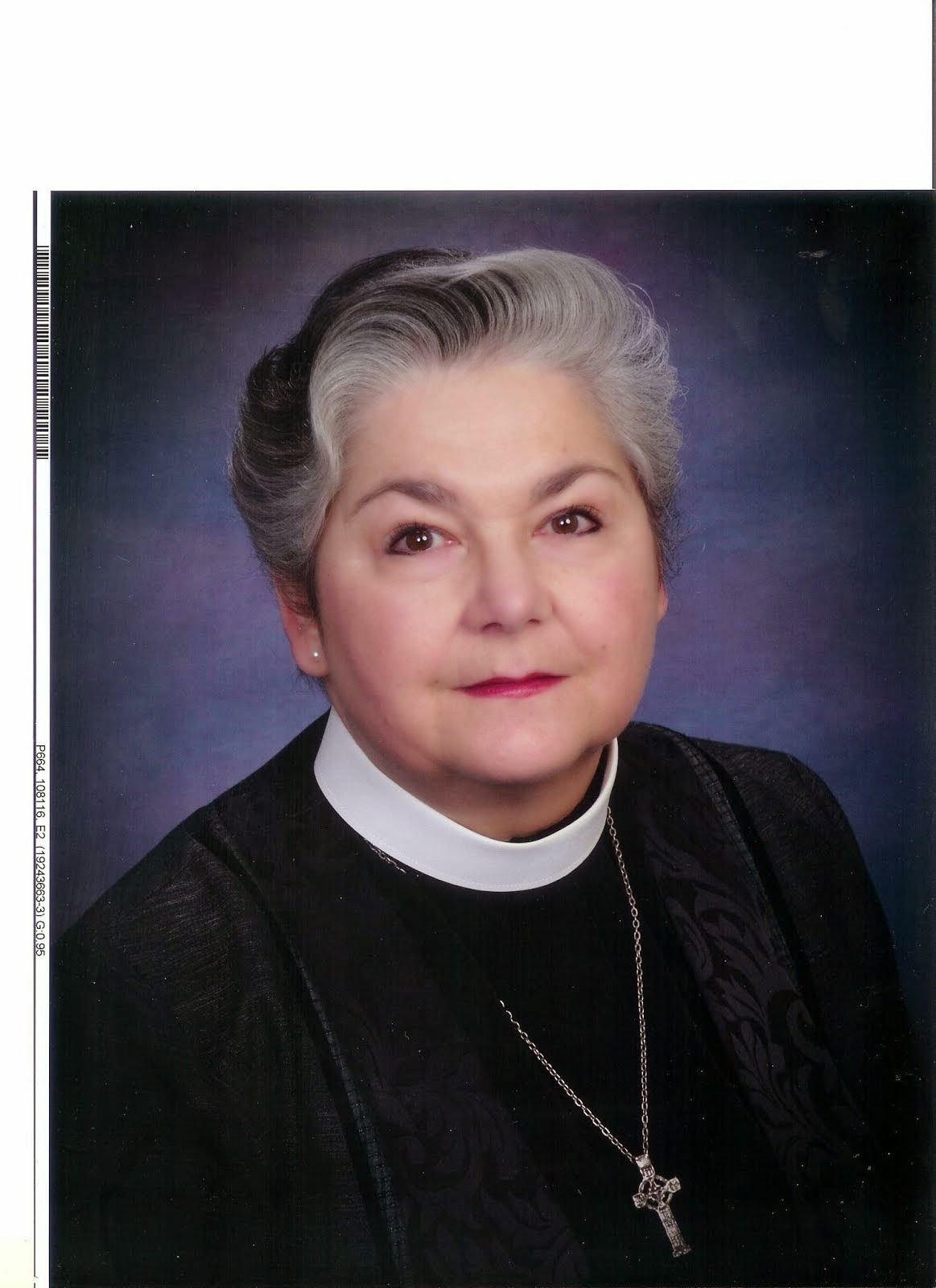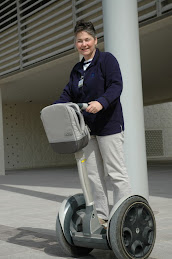Journey is an apt metaphor for this time in your lives and it is also equally apt when we think of the gospel reading for today. It’s a familiar story from the Gospel of Matthew: there were wise men of scholarly learning and of significant means – it takes money to make this sort of journey, right? - and they took a methodical journey based upon their interpretation of astronomical occurrences to see the king that those astronomical occurrences suggested had been newly born or crowned in a place to their west. No doubt they had the resources to make it as comfortable a trip as was possible then, but it was still not exactly traveling on the Orient Express.
 |
| The Journey of the Magi by James Tissot |
The poet TS Eliot captures some of the wearisome expedition in his poem, “The Journey of the Magi:”
'A cold coming we had of it,
Just the worst time of the year
For a journey, and such a long journey:
The ways deep and the weather sharp,
The very dead of winter.'
And the camels galled, sorefooted, refractory,
Lying down in the melting snow.
There were times we regretted
The summer palaces on slopes, the terraces,
And the silken girls bringing sherbet.
Then the camel men cursing and grumbling
and running away, and wanting their liquor and women,
And the night-fires going out, and the lack of shelters,
And the cities hostile and the towns unfriendly
And the villages dirty and charging high prices:
A hard time we had of it.
At the end we preferred to travel all night,
Sleeping in snatches,
With the voices singing in our ears, saying
That this was all folly.
Just the worst time of the year
For a journey, and such a long journey:
The ways deep and the weather sharp,
The very dead of winter.'
And the camels galled, sorefooted, refractory,
Lying down in the melting snow.
There were times we regretted
The summer palaces on slopes, the terraces,
And the silken girls bringing sherbet.
Then the camel men cursing and grumbling
and running away, and wanting their liquor and women,
And the night-fires going out, and the lack of shelters,
And the cities hostile and the towns unfriendly
And the villages dirty and charging high prices:
A hard time we had of it.
At the end we preferred to travel all night,
Sleeping in snatches,
With the voices singing in our ears, saying
That this was all folly.
As I said, not exactly a luxurious jaunt.
So am I suggesting that your journey of transition to a new rector will be equally fraught? I pray that it is not so, and your Bishops and my colleagues and I at Mayo House will do all in our power to smooth the way. It is a fact of life, though, that change makes us uncomfortable even when we know it is coming, when we sense that we are in good hands, when we realize that there is a plan of action. We may not have fractious camels or gouging innkeepers to contend with, but we may have moments of fear and doubt, frustration with what seems like a long process, and confusion about what God has in mind for us. We may be just as tired and irritated as those three wise men in the story. And that’s usually the time when we start to see something unusual happening, that the star is no longer moving through the sky, but has stabilized over a particular place, and the journey is almost done.
But Eliot reminds us that the wise men might have thought they were going to see a king, that this was a diplomatic mission – why else the incredibly impractical gifts of gold, frankincense and myrrh, traditional gifts showing esteem for someone of great power from others who had great power? What they found was something unexpected.
Here's Eliot again:
"Then at dawn we came down to a temperate valley,
Wet, below the snow line, smelling of vegetation;
With a running stream and a water-mill beating the darkness,
And three trees on the low sky,
And an old white horse galloped away in the meadow.
Then we came to a tavern with vine-leaves over the lintel,
Six hands at an open door dicing for pieces of silver,
And feet kicking the empty wine-skins.
But there was no information, and so we continued
And arriving at evening, not a moment too soon
Finding the place; it was (you might say) satisfactory."
Wet, below the snow line, smelling of vegetation;
With a running stream and a water-mill beating the darkness,
And three trees on the low sky,
And an old white horse galloped away in the meadow.
Then we came to a tavern with vine-leaves over the lintel,
Six hands at an open door dicing for pieces of silver,
And feet kicking the empty wine-skins.
But there was no information, and so we continued
And arriving at evening, not a moment too soon
Finding the place; it was (you might say) satisfactory."
Not a palace…
Not even a manor house with winter-dormant gardens…
Just a tavern on the side of the road, somewhat near where the star had settled overhead, and nothing in the way of useful information…
A strange prank of the stars, perhaps? Had they come all this way for nothing? But the wise men continued to a place closer to that great shimmering marker in the night sky, and found the child, the king, in a modest house, an utterly unsuitable place for royalty. In the Gospel of Luke much attention is paid to the fact that the child was born in a livestock shelter, but Matthew places the family in a house, probably some time after the birth. But the location is not as important as the effect on the wise men when they see the child at the end of this long trip.
Remember that this was a hard expedition – Eliot’s story of the petty uglinesses of a road trip meshed with the political maneuverings of the worried King Herod in Matthew’s Gospel – one marked by struggles of empire, of power, of astronomical signs of global change. Something was shifting in Israel, beyond Israel to the parts of the world that these magi came from. Something needed to shift, God knew, because the world was a broken place full of broken people, and this child was the seismic shift that would move the tectonic plates of the heart and soul of the world back to where they needed to align once again.
Something happened when the wise men saw that baby. Eliot names it in the voice of one of them:
"…were we led all that way for
Birth or Death? There was a Birth, certainly
We had evidence and no doubt. I had seen birth and death,
But had thought they were different; this Birth was
Hard and bitter agony for us, like Death, our death.
We returned to our places, these Kingdoms,
But no longer at ease here, in the old dispensation,
With an alien people clutching their gods.
I should be glad of another death."
Birth or Death? There was a Birth, certainly
We had evidence and no doubt. I had seen birth and death,
But had thought they were different; this Birth was
Hard and bitter agony for us, like Death, our death.
We returned to our places, these Kingdoms,
But no longer at ease here, in the old dispensation,
With an alien people clutching their gods.
I should be glad of another death."
Wise men, realizing that they were perhaps not so wise. Men of power and standing and education, realizing that they were perhaps not any of those things. And their old way of looking at themselves, their world, their gods, no longer sufficed. Maybe that is true wisdom, then, seeing how we cannot know all, except the one true thing: that Jesus, the Son of God, took human form to heal the world, to heal us. But recognizing that is a painful truth, isn’t it? A sort of death, even in the joyful birth?
You may recognize that things here in this parish are changing. Aching like the wise men at the end of their long journey, you might say it is not a comfortable feeling. But even in the death of the former way of being God’s people together, you will find rebirth, new life.
What is ahead? We will guide you through a process of assessing who you have been, who you are – I assure you that you are not the same parish you were when you called T. to be your rector, even though it might feel the same liturgically and programmatically – and who God is calling you to be in this next chapter of your parish’s life. You will figure out what sorts of gifts and graces you will seek in your next rector and we will help you search for that individual. And here’s the interesting thing: just like the wise men, the one you find at the end of the road may be a surprise to you.
You will be transformed in this work, as the wise men were changed in Eliot’s poem. You will be surprised by what becomes truly important and what is mere window-dressing. But do it well, and what will be transformed is not only your heart, not only your parish, but also your community, and perhaps even the world. Denise Levertov, in her poem “On the Mystery of the Incarnation” says that we need the moment when “awe cracks the mind’s shell and enters the heart.”
Your gifts to Jesus will not be gold and frankincense and myrrh. On this journey, they will be your prayers, your discerning hearts, your courage to ask daring questions about what the future may hold, and your willingness to help make that future a reality, in this search for your next rector and in this search for God’s will for this parish.
God bless you on the journey. Bless your crotchety camels and your uncomfortable questions. Bless your overworked innkeepers and your ever-patient altar guild. Bless your dear hearts and questing souls and worried minds, and may He bring you to the place of peace you are meant to find, at the end of the road by the still waters, under the stars.
Amen.






